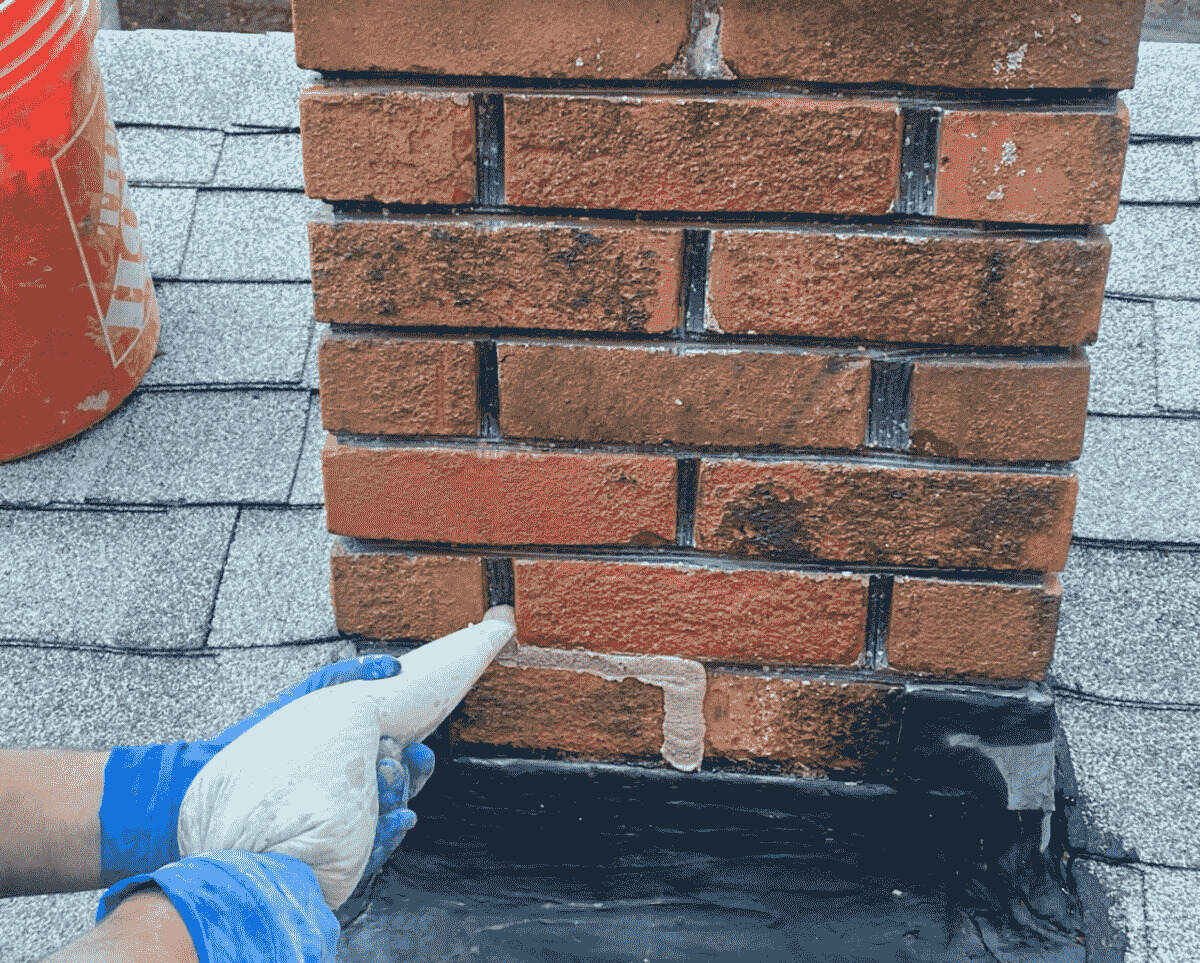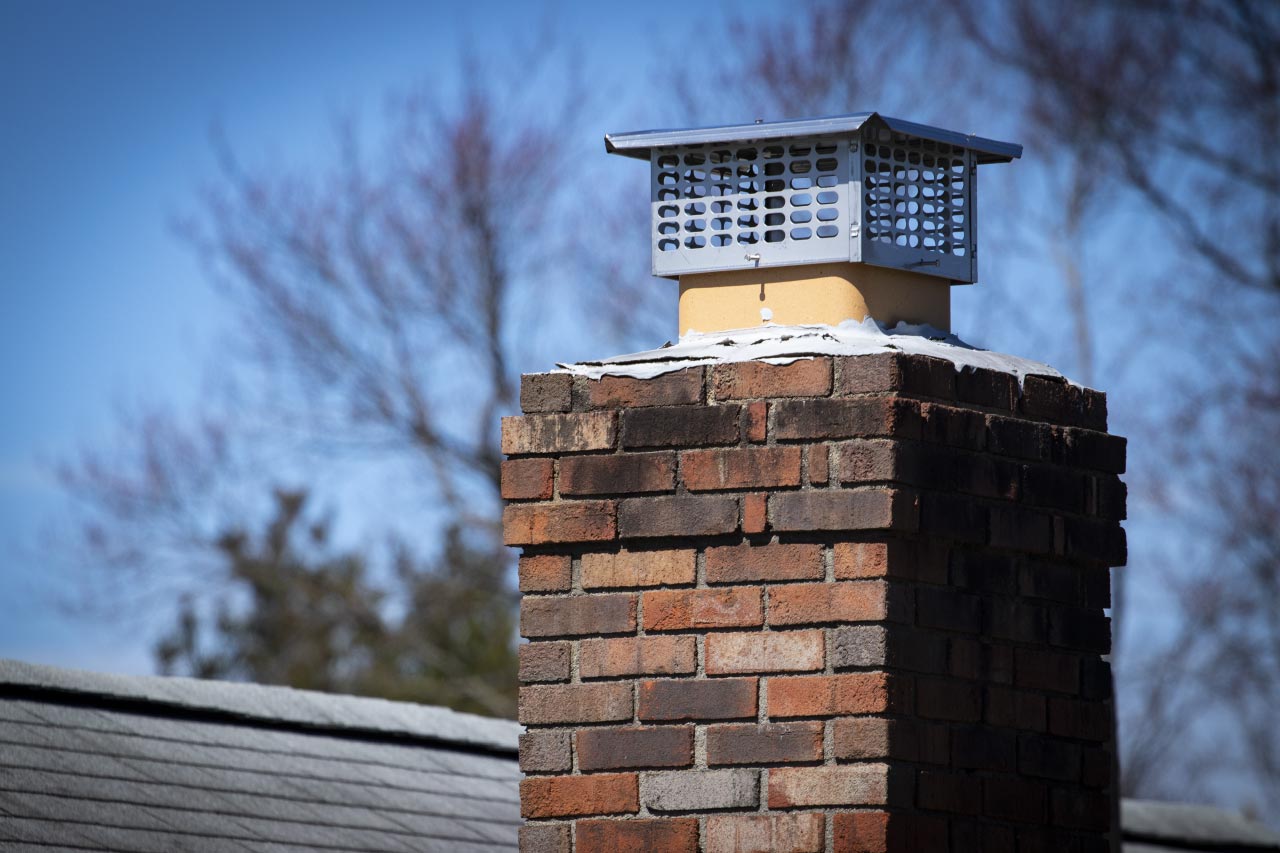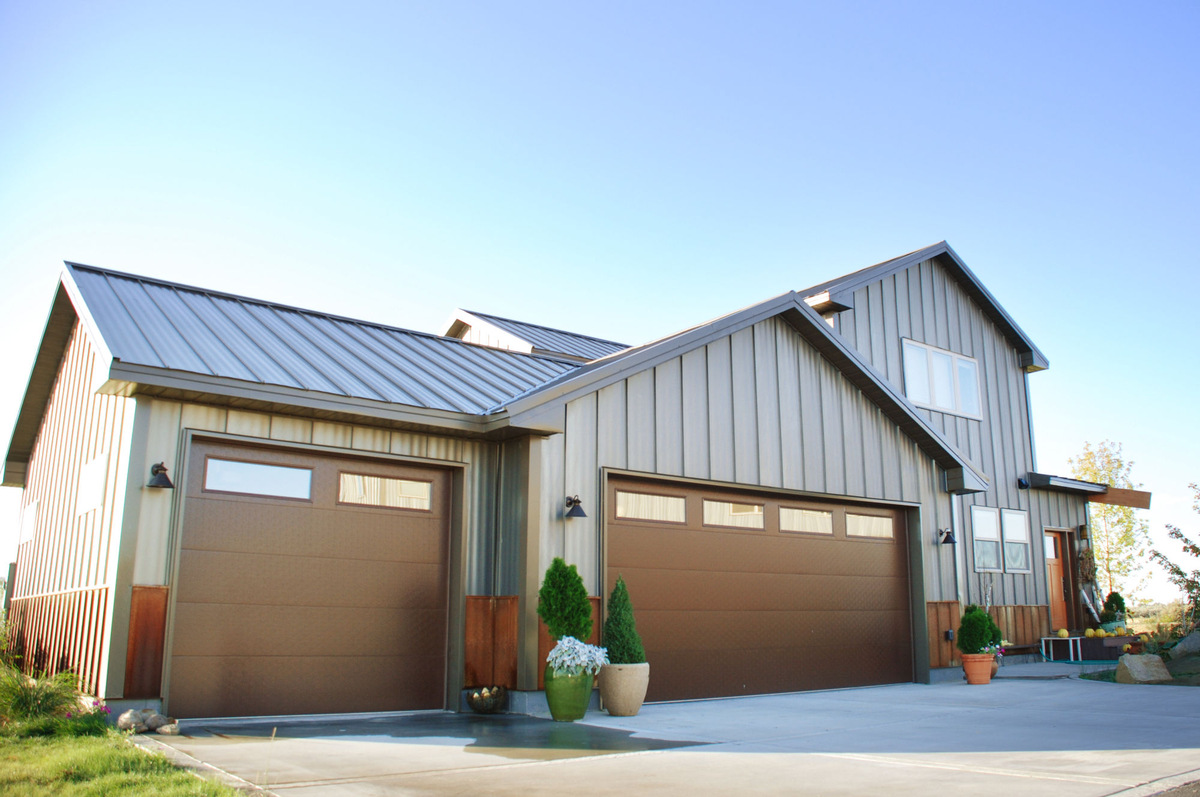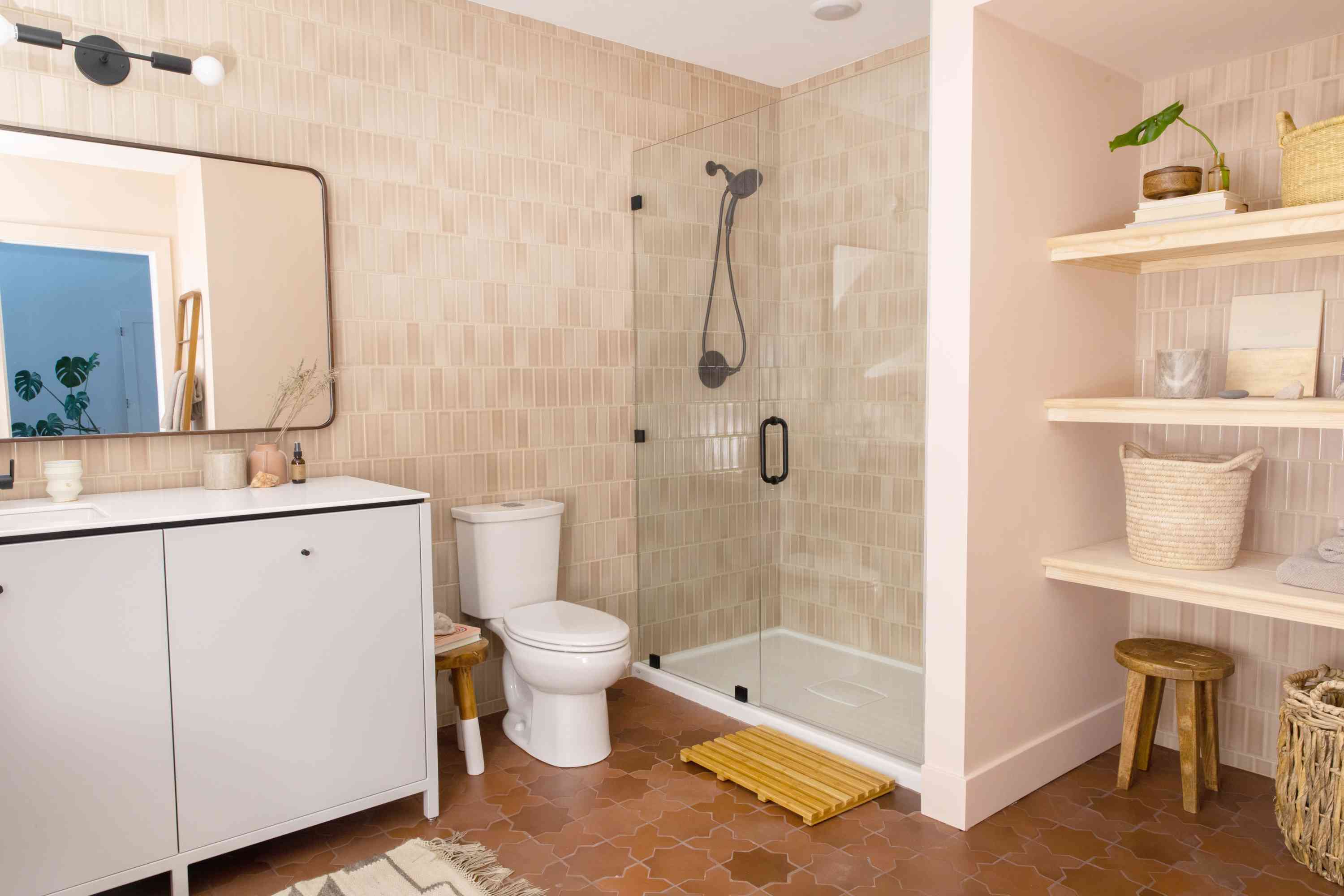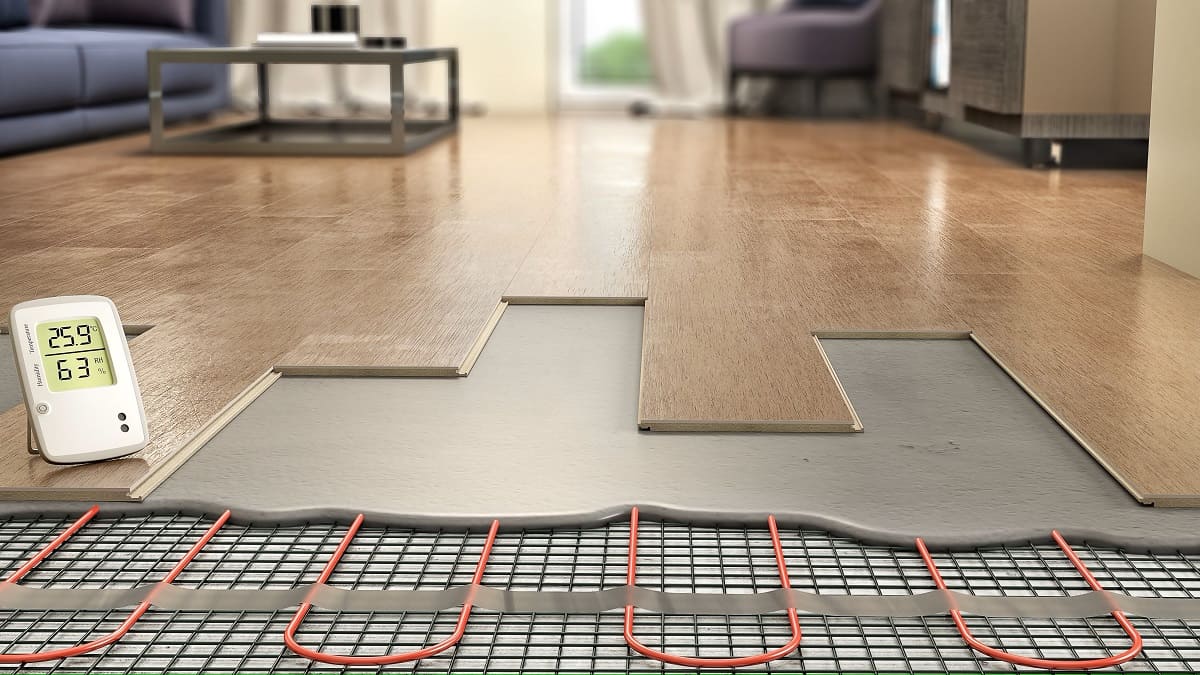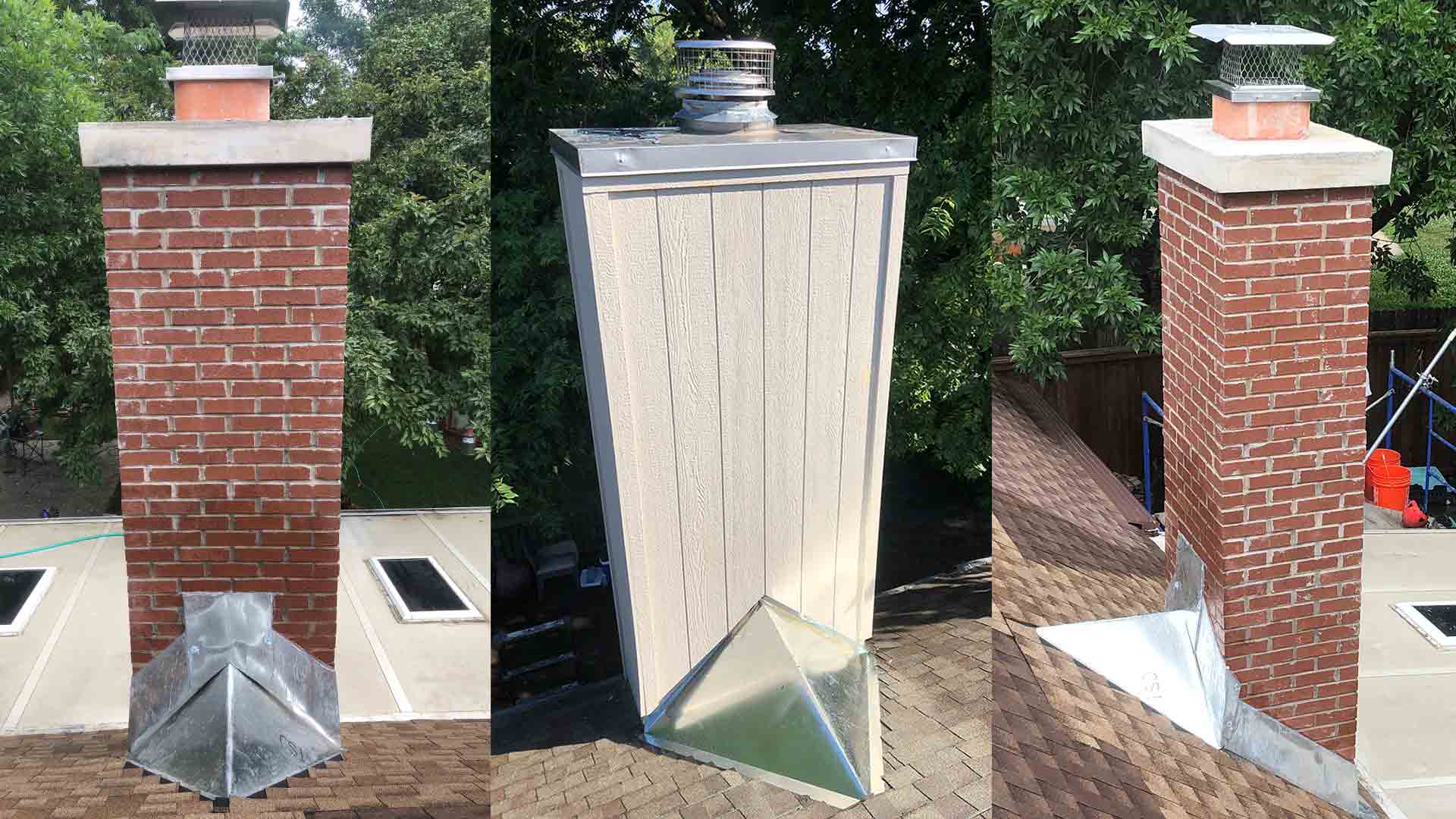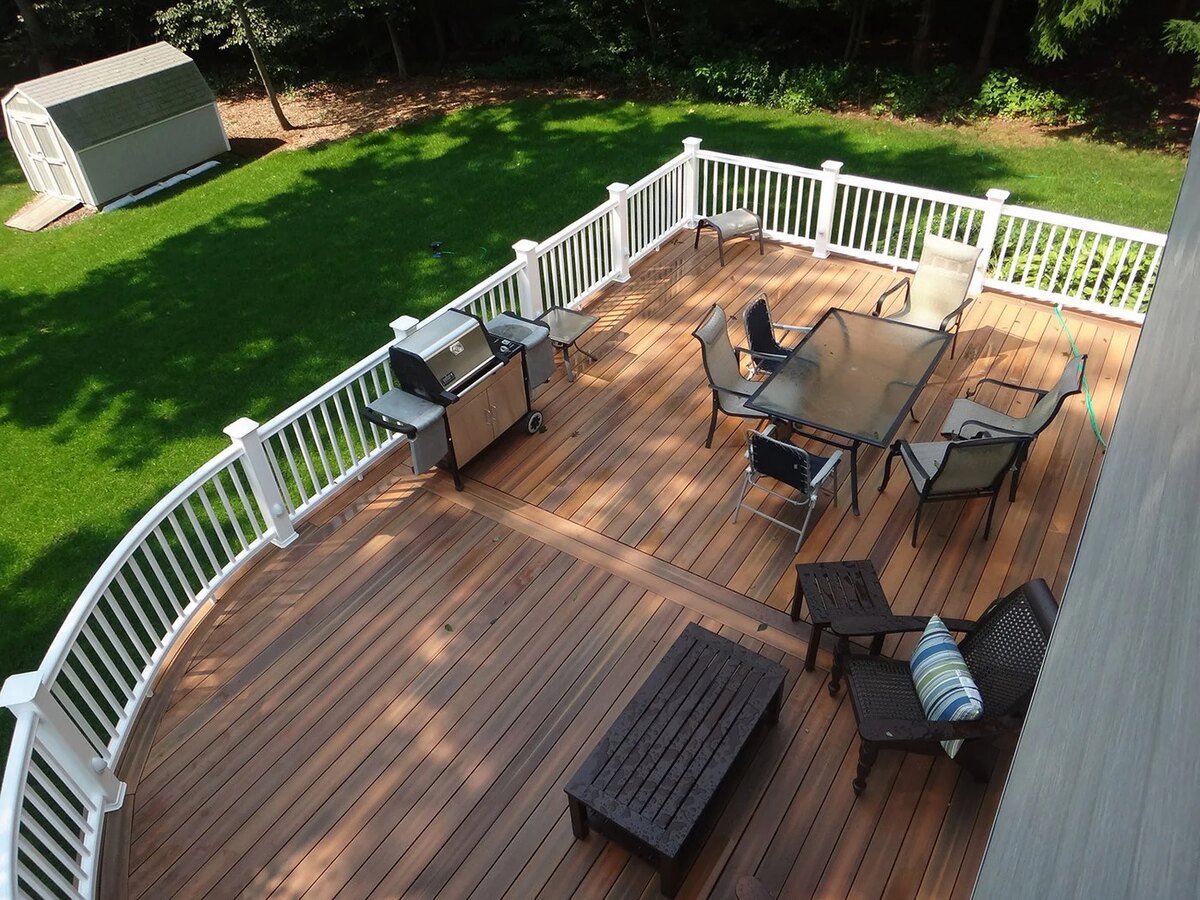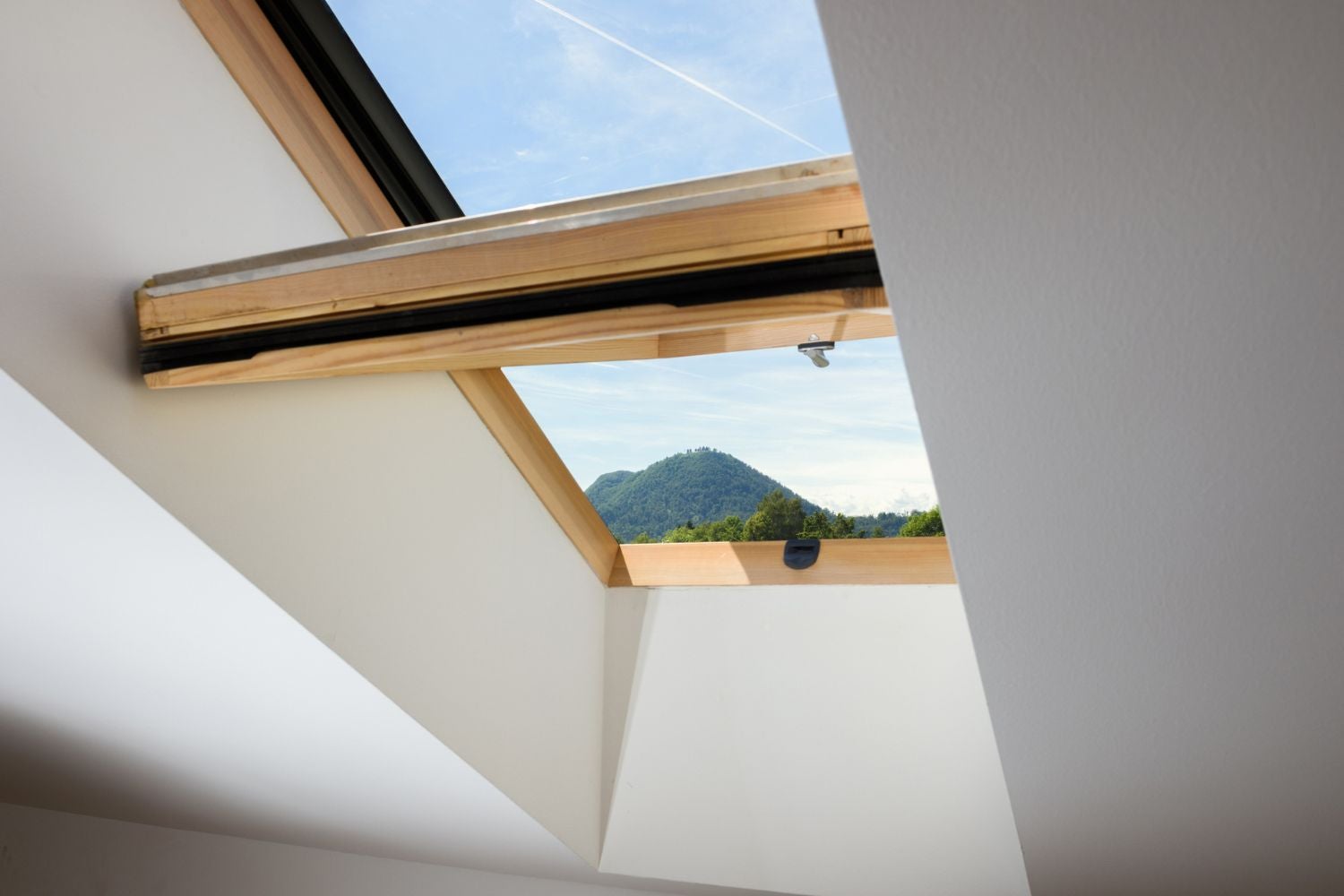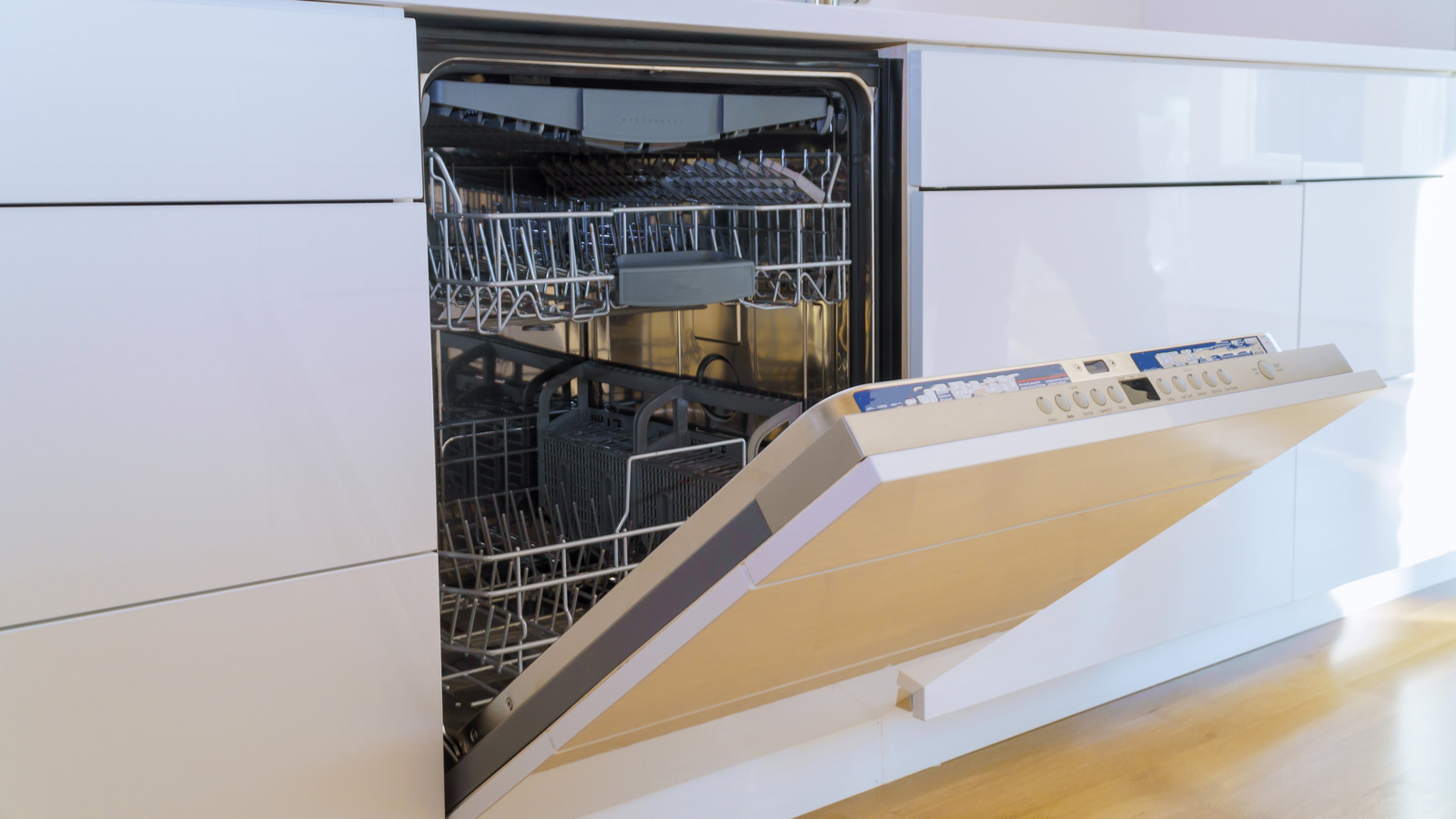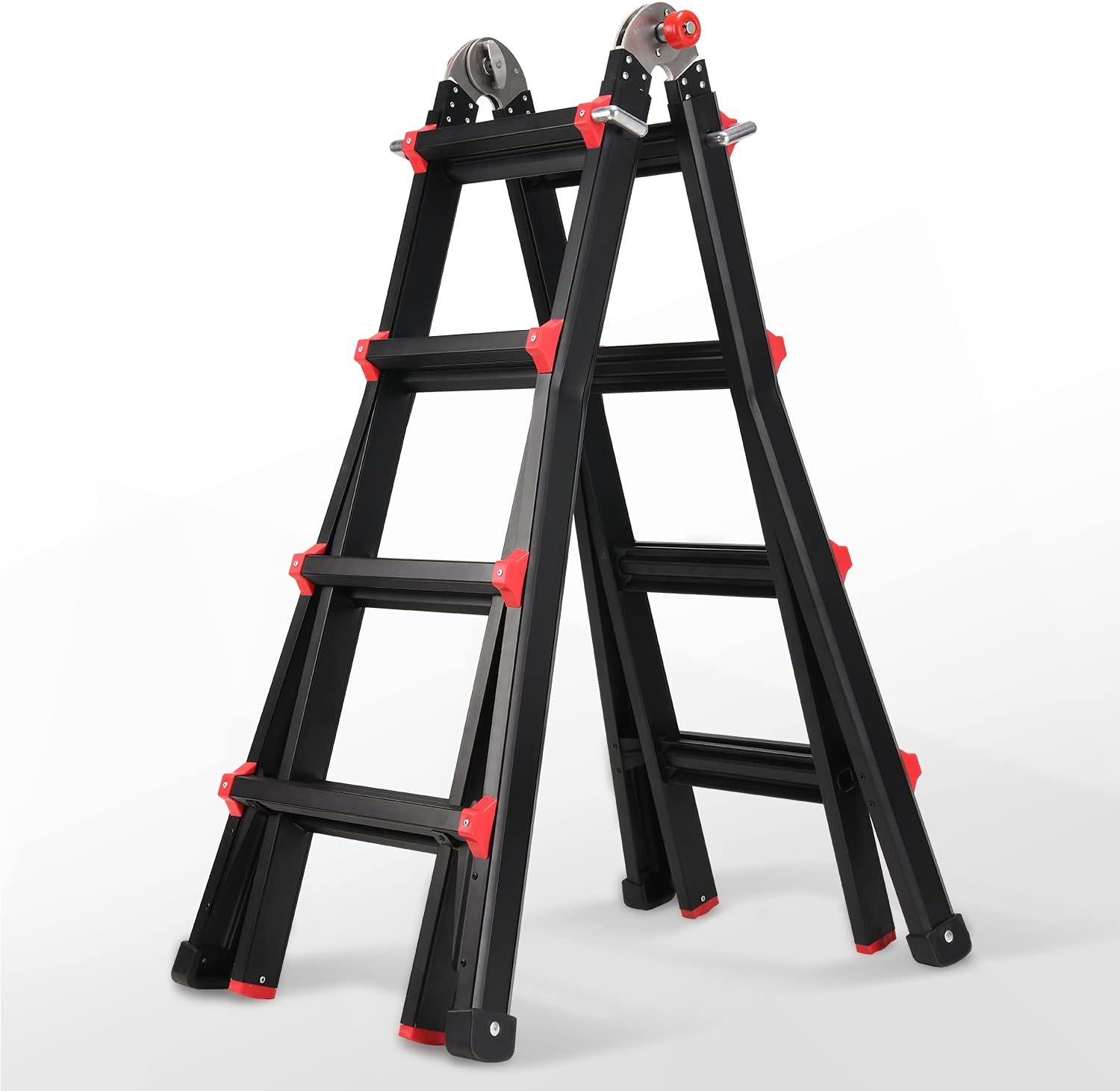Home>Home Maintenance>How Much Does Masonry Repair Cost
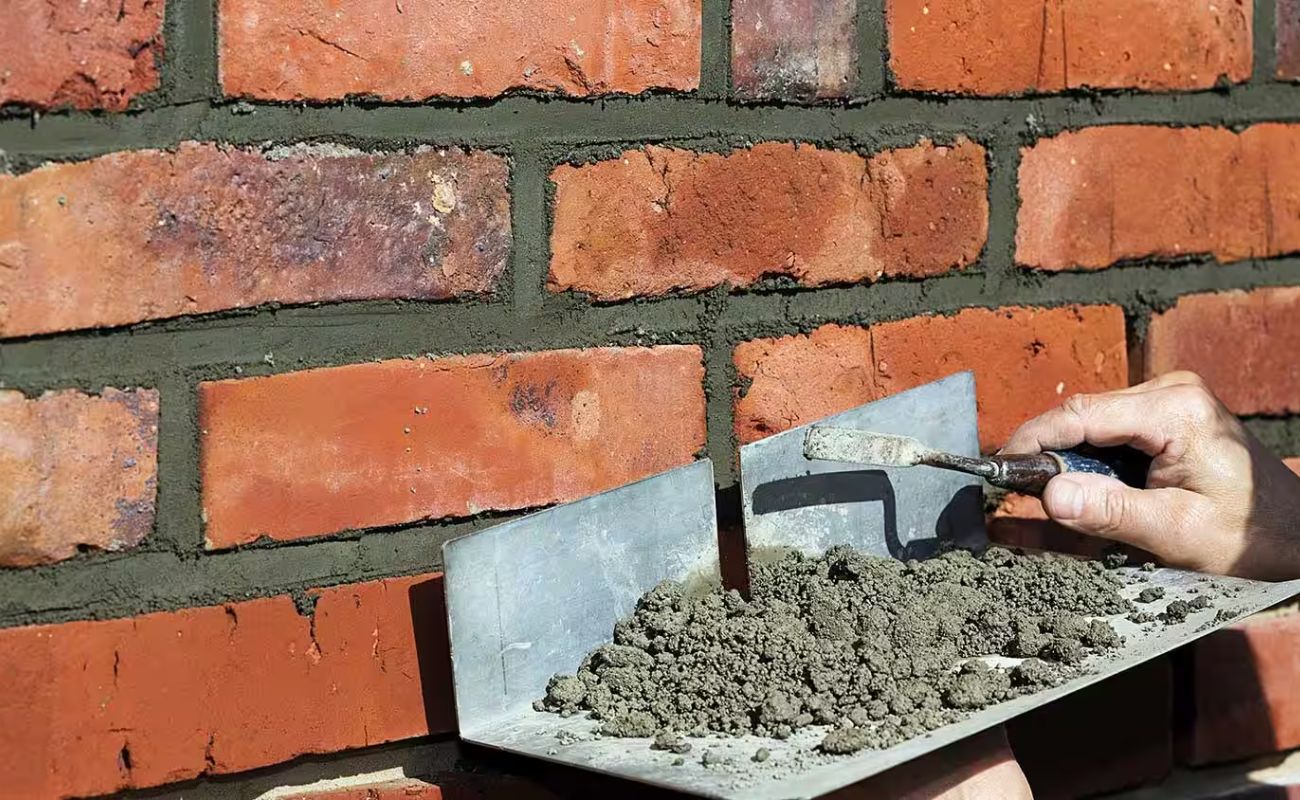

Home Maintenance
How Much Does Masonry Repair Cost
Modified: March 6, 2024
Get an estimate for masonry repair costs to keep your home in top shape. Trust our home maintenance experts for reliable and affordable solutions.
(Many of the links in this article redirect to a specific reviewed product. Your purchase of these products through affiliate links helps to generate commission for Storables.com, at no extra cost. Learn more)
Introduction
Welcome to the world of home maintenance, where taking care of your property is not just necessary, but also a way to keep it in pristine condition. When it comes to masonry, repairing any damage is crucial to ensure the structural integrity and aesthetic appeal of your home.
However, before diving into the costs associated with masonry repair, it’s important to understand the factors that can influence the final price. Various aspects, such as the extent of the damage, the type of masonry repairs needed, and the materials involved, will all play a role in determining the overall cost.
In this article, we will discuss the common types of masonry repairs and provide insight into the costs associated with each. Whether you’re dealing with cracked masonry, damaged grout and mortar, or even a deteriorating chimney, we’ve got you covered.
Before we delve into the specifics, it’s important to note that the cost of masonry repair can vary significantly depending on your location, the size of the project, and the level of expertise required. It’s always a good idea to get multiple quotes from reputable professionals in your area to ensure you’re getting the best possible value for your investment.
So, let’s explore the factors that can affect masonry repair costs and dive into the different types of repairs you may encounter in your home.
Key Takeaways:
- Masonry repair costs vary based on factors like damage severity, materials, and labor. It’s crucial to consult professionals for accurate estimates and ensure long-lasting, high-quality repairs.
- Hiring a professional for masonry repairs offers expertise, time savings, and access to specialized materials. It’s an investment in the safety, beauty, and value of your home.
Read more: How Much Does Chimney Inspection Cost
Factors Affecting Masonry Repair Costs
When it comes to determining the cost of masonry repair, several factors come into play. Understanding these factors will allow you to make an informed decision and budget accordingly. Here are some key factors that can affect the overall cost of masonry repair:
- Extent of Damage: The severity and extent of the damage will directly impact the cost of the repairs. Minor cracks or small areas of damage are generally less expensive to fix compared to major structural issues.
- Type of Masonry: The type of masonry used in your home will also play a role in pricing. Common masonry materials include brick, stone, and concrete, to name a few. Different materials require different techniques and expertise, which can affect the cost.
- Location of the Damage: The location of the damaged masonry can impact the complexity of the repair process. For example, repairs in hard-to-reach areas, such as high-rise buildings or confined spaces, may require additional equipment and manpower, leading to higher costs.
- Materials and Supplies: The cost of materials and supplies needed for the repairs will add to the overall expense. This includes materials such as bricks, mortar, sealants, and any specialized tools or equipment required for the job.
- Labour Costs: The expertise and experience of the professionals carrying out the repairs will be a significant factor in the overall cost. Skilled masonry contractors with a reputation for excellence may charge higher rates, but their expertise ensures a high-quality and long-lasting repair.
- Permits and Regulations: Depending on your location, certain permits or inspections may be required for masonry repairs. These additional costs should be taken into consideration when budgeting for the project.
It’s important to keep in mind that these factors are not static and can vary depending on the specific circumstances of your repair project. Working with a reputable contractor who can assess your unique situation and provide an accurate quote is key to ensuring transparency and avoiding any unexpected surprises.
Common Types of Masonry Repairs
Masonry repairs come in various forms, depending on the type of damage and the area of your home that needs attention. Here are some of the most common types of masonry repairs you may encounter:
- Cracked Masonry: Cracks in masonry can occur due to various factors, including settling or shifting of the foundation, extreme weather conditions, or even natural wear and tear over time. Repairing cracked masonry typically involves filling the cracks with specialized materials to restore the structural integrity and prevent further damage.
- Grout and Mortar Repair: Over time, the grout and mortar between bricks or stones can deteriorate, leading to gaps and weakened joints. Repairing grout and mortar involves removing the damaged material and replacing it with fresh mortar to ensure stability and prevent water penetration.
- Replacing Damaged Bricks: If individual bricks or stones in your masonry are cracked, chipped, or severely damaged, they may need to be replaced. This process involves carefully removing the damaged brick and replacing it with a new one that matches the existing masonry in terms of color and texture.
- Restoring Stonework: If your home boasts beautiful stonework, it’s important to maintain its integrity and aesthetic appeal. Restoring stonework may involve cleaning, repairing, or replacing individual stones to ensure a cohesive and visually pleasing result.
- Repairing Chimneys: Chimneys are particularly vulnerable to damage due to their exposure to harsh weather conditions and constant temperature changes. Repairing a chimney may involve fixing cracks, replacing damaged bricks, resealing flashing, or addressing issues with the chimney cap.
The specific cost of each type of masonry repair can vary depending on the extent of the damage, the materials involved, and the complexity of the repair process. It’s crucial to consult with a professional masonry contractor to assess your unique situation and provide an accurate estimate for the required repairs.
Now that we’ve covered the common types of masonry repairs, let’s dive into the specific costs associated with each repair category.
Cost of Repairing Cracked Masonry
Cracked masonry is a common issue that homeowners face and should be addressed promptly to prevent further damage and maintain the structural integrity of your home. The cost of repairing cracked masonry can vary depending on several factors, including the severity of the cracks and the materials needed for the repair.
For minor cracks that are less than 1/8 inch wide, simple repairs can often be done using a specialized masonry crack filler. These fillers are available in pre-packaged tubes and can be easily applied to fill the cracks. The cost of these fillers is relatively low, ranging from $10 to $30 per tube.
However, for more significant cracks or if the cracks indicate underlying structural issues, it is recommended to consult with a professional masonry contractor. They will assess the situation and provide a more accurate estimate for the necessary repairs.
In these cases, the cost of repairing cracked masonry typically involves the following factors:
- Extent of Damage: The length and width of the cracks play a significant role in determining the cost. Larger or more extensive cracks may require more extensive repairs, which can increase the overall cost.
- Materials Used: The type of materials used to repair the cracked masonry can affect the cost. Depending on the extent of the damage and the materials used in the original construction, a variety of repairs can be done using materials such as mortar, epoxy injections, or polyurethane foam. The cost of these materials can range from $5 to $20 per square foot.
- Labour Costs: Hiring a professional masonry contractor to repair cracked masonry will involve labour costs. The complexity of the repair, the time required, the expertise of the contractor, and the location of the damage are all factors that can impact labour costs. The average labour cost for masonry repairs is around $40 to $60 per hour.
- Additional Costs: Depending on the situation, there may be additional costs involved, such as equipment rentals, permits, or reinforcement materials to ensure the structural stability of the repaired masonry.
It’s important to note that the cost provided above are estimates and can vary depending on your specific location and the contractor you hire. We highly recommend obtaining multiple quotes from reputable masonry contractors to ensure you get the best value for your investment.
Next, let’s explore the cost of repairing grout and mortar, another common type of masonry repair.
Cost of Repairing Grout and Mortar
Over time, the grout and mortar between bricks or stones can deteriorate, leading to gaps and weakened joints. Repairing grout and mortar is essential to maintain the structural integrity and aesthetics of your masonry. The cost of repairing grout and mortar can vary depending on the extent of the damage and the materials needed for the repair.
For minor repairs where only small areas of grout or mortar need attention, a do-it-yourself approach is feasible. Grout and mortar repair kits are readily available in hardware stores and typically cost around $10 to $30. These kits include the necessary tools and materials for repairing small sections of grout or mortar.
However, for larger areas of damage or more extensive repairs, it is advisable to consult with a professional masonry contractor. They will assess the situation and determine the best course of action for repairing the grout and mortar in your masonry.
The cost of repairing grout and mortar typically involves the following factors:
- Extent of Damage: The amount of grout or mortar that needs to be repaired or replaced will directly impact the cost. Larger areas or more extensive damage will require more time and materials, resulting in higher costs.
- Materials Used: The type of materials used in the repair process will affect the cost. Common materials include mortar mix, grout mix, and any sealants or additives needed to match the existing masonry. The cost of these materials can range from $10 to $50 per bag, depending on the brand and quantity required.
- Labour Costs: Hiring a professional masonry contractor for grout and mortar repairs will involve labour costs. The complexity of the repair, the time required, the expertise of the contractor, and the location of the damage are factors that can impact the labour costs. On average, masonry labour costs range from $40 to $60 per hour.
- Additional Costs: Depending on the specific situation, there may be additional costs involved, such as the rental of equipment, permits, or the need for specialized tools or techniques to ensure a proper repair.
It’s important to note that the cost estimates provided above are general guidelines and can vary depending on your location and the contractor you hire. To get an accurate estimate, we recommend obtaining quotes from multiple reputable masonry contractors in your area.
Now, let’s explore the cost of replacing damaged bricks, which is another common masonry repair.
Read more: How Much Does It Cost To Replace A Chimney
Cost of Replacing Damaged Bricks
If individual bricks or stones in your masonry are cracked, chipped, or severely damaged, they may need to be replaced. This process of replacing damaged bricks is crucial to ensure the structural integrity and visual appeal of your masonry. The cost of replacing damaged bricks can vary depending on several factors, including the number of bricks needed and the complexity of the repair.
For minor repairs where only a few bricks need replacement, it may be possible to handle the task yourself if you have the necessary skills and experience. However, keep in mind that replacing bricks requires precision and attention to detail to ensure a seamless integration with the existing masonry.
If the damage is more extensive or if you prefer to seek professional assistance for brick replacement, it’s recommended to hire a licensed masonry contractor. They will assess the situation, source matching bricks, and carry out the replacement process with expertise and precision.
The cost of replacing damaged bricks typically involves the following factors:
- Number of Bricks: The number of bricks that need replacement directly impacts the cost. The more bricks that need to be replaced, the higher the material and labour costs will be.
- Matching Bricks: Finding matching bricks is crucial to maintain the visual coherence of your masonry. Depending on the age and availability of the original bricks, finding suitable matches can sometimes be a challenge. The cost of matching bricks can range from $1 to $10 per brick, depending on availability and quality.
- Labour Costs: Hiring a professional masonry contractor for brick replacement will involve labour costs. The complexity of the repair, the time required, the expertise of the contractor, and the location of the damaged bricks are factors that can impact the labour costs. On average, masonry labour costs range from $40 to $60 per hour.
- Additional Costs: There may be additional costs associated with brick replacement, such as the removal of damaged bricks, disposal of old materials, and the need for specialized tools or equipment.
It’s important to note that the cost estimates provided above are general guidelines and can vary depending on your location and the contractor you hire. To get an accurate estimate, we recommend obtaining quotes from multiple reputable masonry contractors in your area.
Now, let’s explore the cost of restoring stonework, another common type of masonry repair.
Tip: The cost of masonry repair can vary based on the extent of damage, materials needed, and labor costs. It’s best to get multiple quotes from reputable contractors to compare prices and ensure you’re getting a fair deal.
Cost of Restoring Stonework
If your home boasts beautiful stonework, it’s important to maintain its integrity and aesthetic appeal. Over time, stonework may become damaged or worn, requiring restoration to ensure its longevity. The cost of restoring stonework can vary based on factors such as the type and condition of the stones, the extent of the restoration needed, and the materials and labor involved.
Restoring stonework involves several processes, including cleaning, repairing, or replacing individual stones to ensure a cohesive and visually pleasing result. Here are some key factors that can influence the cost of restoring stonework:
- Type of Stones: The type of stones used in the stonework will affect the cost. Natural stone, such as granite or limestone, tends to be more expensive than manufactured stone. The rarity and availability of the stone can also impact the cost of restoration.
- Extent of Damage: The extent of damage to the stonework will have a significant impact on the cost of restoration. Minor repairs, such as filling in cracks or replacing individual stones, will generally be less expensive compared to extensive restoration that involves reconstructing entire sections of the stonework.
- Labor Costs: Skilled labor is essential for proper stonework restoration. Stonemasons or restoration specialists with expertise in working with stone may charge higher rates for their services. The complexity of the restoration, the time required, and the location of the stonework can also influence the labor costs.
- Materials Used: The cost of materials used in stonework restoration can vary depending on the type of stone, the mortar or adhesive needed, and any additional treatments or finishes required. Additionally, if matching stones need to be sourced for replacements, the cost may be higher due to the effort involved in finding suitable matches.
- Equipment and Tools: In some cases, specialized equipment and tools may be required for stonework restoration. This can include scaffolding, diamond cutting tools, and other machinery. The cost of renting or using these tools should be considered when budgeting for the restoration project.
Each stonework restoration project is unique, and it’s essential to consult with a professional stonemason or restoration specialist for an accurate estimate. They will assess the condition of your stonework, discuss your restoration goals, and provide you with a detailed breakdown of the costs involved.
Keep in mind that stonework restoration is an investment that not only enhances the beauty of your home but also increases its value. By ensuring that your stonework is properly maintained and restored, you can enjoy its timeless elegance for years to come.
Now let’s explore the cost of repairing chimneys, another masonry repair frequently encountered by homeowners.
Cost of Repairing Chimneys
Chimneys are particularly vulnerable to damage due to their exposure to harsh weather conditions and constant temperature changes. Over time, chimneys may develop cracks, gaps, or other issues that require repair. The cost of repairing chimneys can vary depending on the extent of the damage and the specific repairs needed.
Here are some common chimney repairs and their associated costs:
- Cracks in the Chimney: Repairing cracks in the chimney can involve various methods, such as filling in the cracks with mortar or using chimney repair sealants. The cost of repairing cracks typically depends on the size and severity of the cracks. On average, you can expect to pay between $150 and $300 for small to medium-sized cracks.
- Replacing Damaged Bricks: If the chimney has damaged or deteriorated bricks, they may need to be replaced. The cost of replacing damaged bricks will depend on the number of bricks required and their availability. The cost per brick can range from $1 to $10, depending on the type and size of the brick.
- Repointing or Tuckpointing: Over time, the mortar between the bricks can deteriorate, leading to gaps and weakened joints. Repointing or tuckpointing involves removing the old mortar and replacing it with fresh mortar to ensure stability. The cost of repointing or tuckpointing can range from $8 to $15 per square foot, depending on the condition of the existing mortar and the size of the chimney.
- Repairing or Replacing Flashing: Flashing is the material used to create a watertight seal where the chimney meets the roof. If the flashing is damaged or deteriorated, it can lead to water leaks and other issues. The cost of repairing or replacing flashing can vary depending on the materials used and the complexity of the repair. On average, you can expect to pay between $300 and $700 for chimney flashing repair or replacement.
- Chimney Cap Replacement: The chimney cap helps prevent water, debris, and animals from entering the chimney flue. If the chimney cap is damaged or missing, it should be replaced. The cost of replacing a chimney cap typically ranges from $150 to $500, depending on the materials used and the design of the cap.
It’s important to note that these are general cost estimates and can vary based on the location, size, and specific requirements of your chimney repair project. Additionally, factors such as accessibility, height, and additional repairs needed may affect the overall cost.
To ensure an accurate estimate, it’s recommended to consult with a professional chimney repair specialist. They will assess the condition of your chimney, provide a detailed inspection report, and offer a quote based on the necessary repairs.
Remember, timely chimney repairs are essential to maintain the safety, efficiency, and longevity of your fireplace and chimney system. Don’t neglect any signs of damage and address chimney repairs promptly to avoid costly issues in the future.
In the next section, we’ll discuss additional costs to consider when planning for masonry repairs.
Additional Costs to Consider
When planning for masonry repairs, it’s important to consider additional costs that may arise during the process. These costs can vary depending on the specific circumstances of your repair project. Here are some common additional costs to keep in mind:
- Equipment Rentals: Depending on the repair project, you may need to rent specialized equipment or tools. This can include scaffolding, masonry saws, mortar mixers, or other machinery. The rental fees for these items should be factored into your budget.
- Permits and Inspections: Depending on your local regulations, you may need to obtain permits or undergo inspections for certain masonry repairs. The cost of permits and inspections can vary, so it’s important to check with your local building department for specific requirements and associated fees.
- Reinforcement Materials: In some cases, additional reinforcement materials may be necessary to ensure the structural stability of the repaired masonry. This can include items such as metal ties, anchor bolts, or wall ties. The cost of these materials should be considered when budgeting for the project.
- Cleanup and Disposal: After completing the masonry repairs, there may be debris or waste materials that need to be cleaned up and disposed of properly. The cost of cleanup and disposal can vary, depending on the amount of waste and the services required for removal.
- Future Maintenance: It’s important to consider the long-term maintenance costs when budgeting for masonry repairs. Regular maintenance, such as cleaning, sealing, or periodic inspections, can help extend the lifespan of your masonry and prevent future costly repairs.
These additional costs can vary depending on the specifics of your masonry repair project. It’s crucial to communicate with your chosen contractor to understand any potential additional costs upfront and factor them into your budget.
Remember, investing in proper maintenance and repairs now can save you from more extensive and costly repairs down the line. It’s always recommended to consult with a professional masonry contractor for an accurate assessment of your repair needs and to receive a detailed cost estimate.
In the next section, we’ll discuss the importance of hiring a professional for masonry repairs and the benefits it can bring.
Read more: How Much Does It Cost To Clean A Chimney
Hiring a Professional for Masonry Repair
When it comes to masonry repair, hiring a professional is highly recommended. While you may be tempted to tackle the repairs yourself to save some money, working with a skilled and experienced masonry contractor offers several advantages. Here’s why you should consider hiring a professional for your masonry repair needs:
- Expertise and Skill: Professional masonry contractors have the knowledge, skills, and experience to assess the condition of your masonry accurately and determine the best course of action. They understand the intricacies of masonry repair and can deliver high-quality results, ensuring the longevity and stability of your structure.
- Efficiency and Time Savings: Masonry repairs can be time-consuming, especially if you lack experience in the field. Hiring a professional allows you to save time and eliminate potential frustration associated with DIY repairs. Professionals have the necessary tools, equipment, and manpower to complete the job efficiently and within a reasonable timeframe.
- Access to Specialized Techniques and Materials: Masonry contractors have access to specialized techniques and materials that may not be readily available to homeowners. They can utilize industry-specific tools, equipment, and high-quality materials to ensure a more durable and aesthetically pleasing repair.
- Compliance with Building Codes and Regulations: Professional masonry contractors stay informed about local building codes and regulations. By hiring a professional, you can rest assured that your repairs will be carried out in compliance with the relevant standards, ensuring the safety and integrity of your structure.
- Time and Cost Efficiency: While it may seem more cost-effective to handle repairs yourself, DIY repairs can often lead to mistakes and additional expenses. Professionals get the job done right the first time, minimizing the chances of costly redo’s or further damage. They can also source materials at better prices and offer cost-effective solutions tailored to your budget.
- Warranty and Guarantee: Reputable masonry contractors often provide warranties or guarantees on their workmanship. This offers you peace of mind, knowing that if any issues arise after the repair, they will be rectified at no additional cost to you.
When hiring a professional masonry contractor, take the time to research and choose someone with a solid reputation, positive customer reviews, and relevant licenses and certifications. Obtain multiple quotes to compare prices and services offered. A reputable contractor will be transparent, providing a detailed breakdown of the costs involved, timeline, and any additional considerations specific to your project.
Investing in a professional for your masonry repairs is a worthwhile decision that will ensure the long-term integrity, beauty, and value of your home.
Now, let’s conclude our exploration of masonry repair costs.
Conclusion
Masonry repairs are an essential aspect of home maintenance, ensuring the structural integrity and visual appeal of your property. Understanding the costs associated with masonry repair is crucial for effective budgeting and making informed decisions. By considering the factors that can affect masonry repair costs, you can better estimate the investment required for your specific project.
Whether you’re dealing with cracked masonry, damaged grout and mortar, or even a deteriorating chimney, it’s important to consult with a professional masonry contractor to assess the situation accurately and provide an accurate estimate.
The cost of masonry repairs can vary depending on factors such as the extent of damage, the materials involved, and the complexity of the repair process. It’s essential to consider additional costs, such as equipment rentals, permits and inspections, reinforcement materials, cleanup, and future maintenance, when budgeting for your project.
While it may be tempting to tackle masonry repairs yourself, hiring a professional masonry contractor offers numerous advantages. With their expertise, specialized tools, and access to quality materials, professionals can ensure efficient and long-lasting repairs, saving you time, money, and potential headaches in the long run.
Remember, masonry repairs are an investment in the safety, functionality, and beauty of your home. By taking care of repairs promptly and hiring a professional for the job, you can maintain the value of your property and enjoy the benefits for years to come.
Now that you have a deeper understanding of masonry repair costs, you’re well-equipped to embark on your masonry repair journey with confidence.
Frequently Asked Questions about How Much Does Masonry Repair Cost
Was this page helpful?
At Storables.com, we guarantee accurate and reliable information. Our content, validated by Expert Board Contributors, is crafted following stringent Editorial Policies. We're committed to providing you with well-researched, expert-backed insights for all your informational needs.
